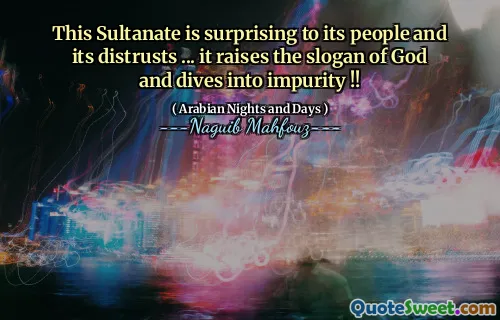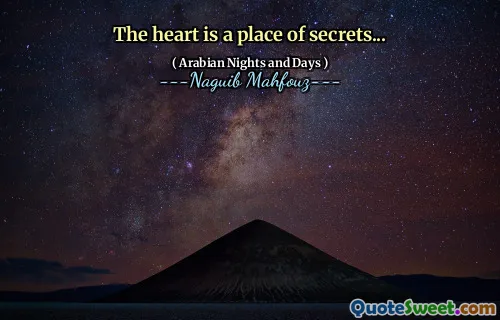
This Sultanate is surprising to its people and its distrusts ... it raises the slogan of God and dives into impurity !!
The quote reflects the contradictions within a Sultanate, highlighting the seemingly pious nature of its leadership while pointing out the underlying moral decay. It suggests that the rulers project an image of righteousness by invoking the name of God, yet their actions reveal a deeper corruption. This duality presents a troubling paradox for the citizens who navigate these conflicting values in their daily lives.
Naguib Mahfouz, in "Arabian Nights and Days," uses this juxtaposition to illustrate the complexities of political and social life in the Sultanate. It emphasizes how the populace grapples with the facade of virtue that cloaks pervasive dishonesty and ethical failings. Such themes resonate deeply, revealing the interplay between belief and practice in a society shaped by deception.








